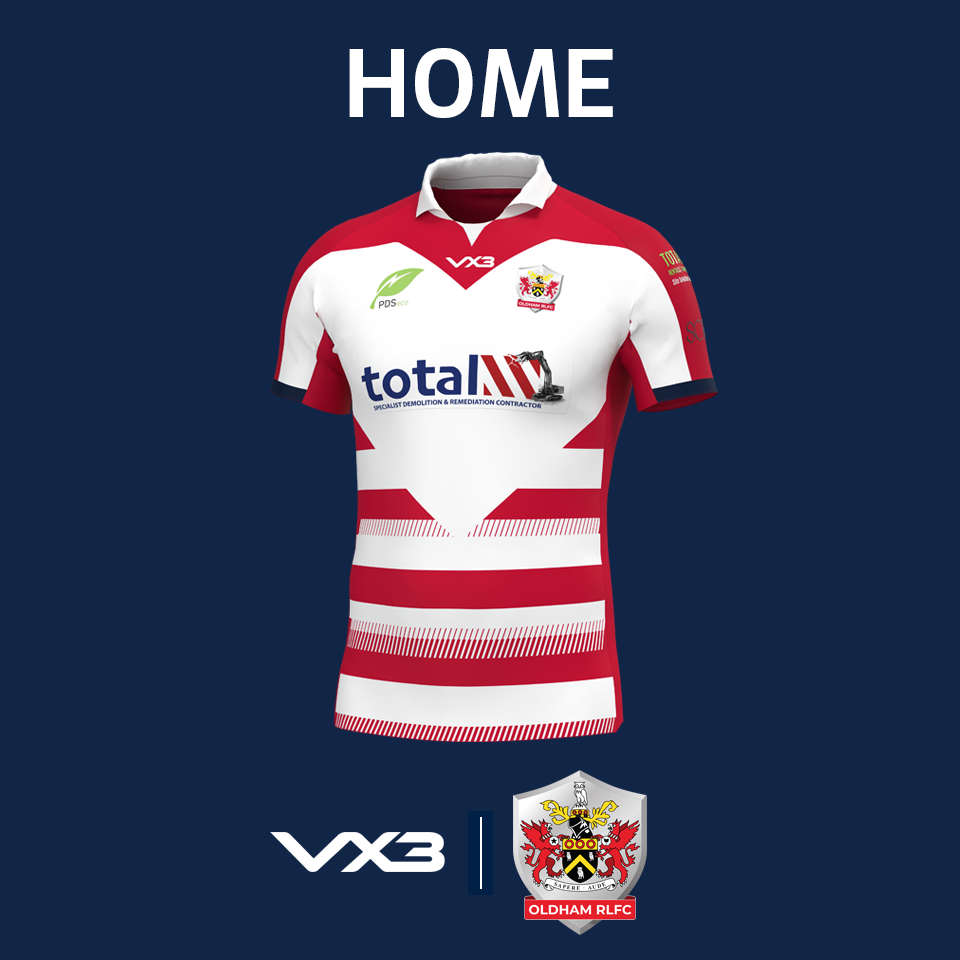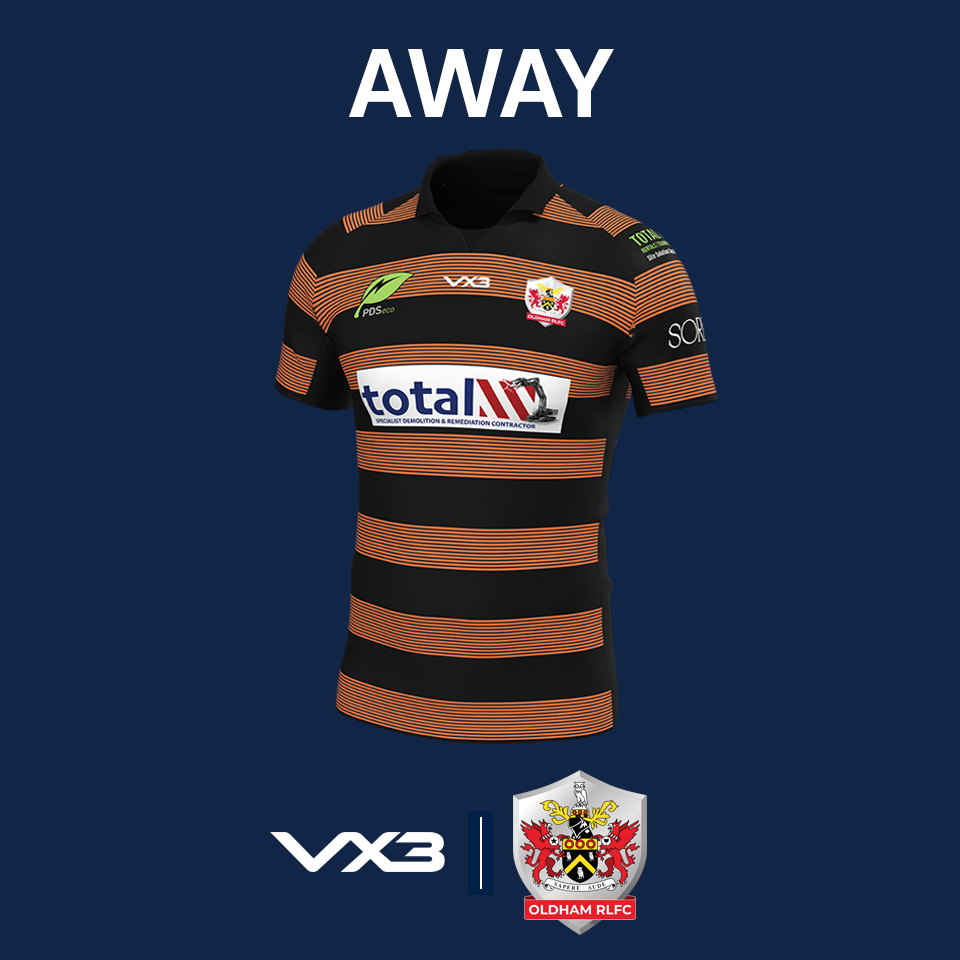OLDHAMER Joseph Platt’s inclusion in the Rugby Football League’s prestigious Roll of Honour will be marked next Saturday by a special presentation at a 125th anniversary celebration in Huddersfield’s George Square, to be hosted by Kirklees Council.
The former Oldham FC official, a leading figure in the momentous decision to break away from the rugby union in 1895 and form what we know today as the Rugby League, will become the 41st name on our sport’s honours board which recognises individuals who have made extraordinary contributions to the sport, both on and off the field.
Current Oldham RLFC chairman Christopher Hamilton lauded the RFL’s decision to honour the local man and said:
“It’s a fitting and overdue recognition of the part Joseph Platt played in not only helping to set up rugby league as we know it today, but in his unswerving loyalty to the Oldham club and to the game in general.
“In this 125th anniversary of the greatest game it is only right that we think back to the brave men who trod a new path all that time ago.
“Joseph Platt was a credit to the club, to the town and to rugby league and we are honoured to be carrying the flag for the game at this present time.
“We are striving to get the Oldham club back to the forefront of the game but, throughout the years, it has always played a significant role in the sport’s history and long may that continue.”
On August 29, 1895 Joseph Platt was the Oldham club’s representative at that historic meeting in the George Hotel, Huddersfield that voted to break ranks from the RFU and form a new organisation in the north, the Northern Union, later to become the Rugby League.
Moreover, he was appointed the first secretary of the Northern Union, a post he would fill with distinction for nearly 25 years, and it is widely believed that he was the new organisation ‘s main man in its formative years when he administered the new game of rugby from his business premises in Queen Street, Oldham.
He was born in 1863 and he died in 1930. At the time of his death he lived on Werneth Hall Road. He’s buried in Chadderton Cemetery.
There’s a blue plaque on the wall of his offices in Queen Street and the citation says that as honorary secretary of the Northern Union he ran the game from there from 1895 until 1920.
He was considered by many, it says, to be the father figure of Rugby League.
He was also an Oldham club official for an astonishing 45 years, from 1885, when he was 23, until his death in 1930.
In his book, ‘Oldham RLFC — The Complete History 1876 – 1997’, Michael Turner wrote:
“Born in Royton, Joseph Platt trained as a land surveyor and ran his own business from Queen Street in the town centre. He was elected to the Oldham committee in 1885 and subsequently became treasurer in 1887.
“By all accounts a quiet, unassuming man, he was instilled with an acute business brain, allied to a pride in his office with the determination to set about raising the profile of the club. To this end he was instrumental in the acquisition of Welsh internationals Dai Gwynne and Bill McCutcheon.
“He was also a founder of the British Playing Fields Society and became managing director of the Empire Theatre. He will, however, be forever best remembered as one of the finest administrators of the Northern Union, helping to steer the game through its initial teething period and securing added respectability for the sport by persuading the Earl of Derby to become the President, which in turn led to King George V becoming Patron.
“Joseph Platt occupies a special place of distinction in the world of Rugby League as he went a long way towards establishing the sport as the greatest oval-ball game in the world.”
In 1910, some 15 years after the breakaway, there was an article on Platt by ‘Argus’ in a match-day Oldham programme. He wrote of Platt:
“We all know that had it not been for his enthusiasm, his clear sightedness, his courageous actions and his inexhaustible energy the game would certainly not have been what it is today.”
The Oldham club — and our town — can be proud of the magnificent contribution of “one of our own” to the great game of rugby we know today as Rugby League.
DID YOU KNOW . . . THAT:
- At 6.30pm on Thursday, August 29, 1895, 21 teams, including Oldham, met at The George Hotel in Huddersfield to form the Northern RFU and legalise broken-time payments at six shillings per match.
- A week later, the first season of the sport that would become Rugby League kicked off. Manningham, based in Bradford, were the first league champions. The following season, Batley beat St Helens at Headingley in the first Challenge Cup final.
- The first Northern Union fixtures following rugby’s great split took place on Saturday, September 7, 1895. Results were: Batley 7, Hull 3; Bradford 11, Wakefield 0; Broughton 0, Wigan 9; Leigh 3, Leeds 6; Liversedge 0, Halifax 5; Runcorn 15, Widnes 4; St Helens 8, Rochdale 0; Stockport 0, Brighouse 5; Tyldesley 6, Manningham 0; Warrington 5, Hunslet 4.
- Oldham and Huddersfield didn’t play on the first weekend, but both were in action on September 14 when Oldham lost 16-8 at Hunslet and Huddersfield beat Wakefield 10-0.
- Only four of the founder clubs still play at their original venues — Leeds, Batley, Widnes and Wakefield.
- In 1897 the line-out was abolished. In 1906 the play-the-ball was introduced and teams were reduced to 13 players.
- In 1907 a New Zealand came to Britain on the first Rugby League tour. The Kiwis stopped in Sydney en route to help to start rugby league in Australia and a year later the first Aussie team toured here.

























